Where the candidates stand: Key economic issues in the Buffalo mayoral race
The Partnership
May 2, 2025
Blog Categories
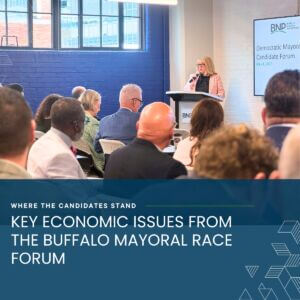
For the first time since 2006, the City of Buffalo is electing a new mayor. The office has drawn considerable interest, leading to a crowded field of candidates running in the June 24 primary election.
On Thursday, May 1, the BNP hosted a Democratic Mayoral Candidate Forum.
The BNP’s candidate forum model has been a popular way for employers to meet candidates for office. Instead of exchanging jabs on social media or in a debate, the forum forces candidates to demonstrate a strong grasp and vision on the issues facing the City. This event builds on the success of previous BNP candidate forums, including the 2022 NYS Governor race and 2023 Erie County Executive race.
Meet the candidates
To help BNP members meet the candidates and learn where they stand on the issues facing our regional economy, the BNP invited the top three fundraising candidates to participate:
- Chris Scanlon. Scanlon has served as acting Buffalo mayor since October, and previously spent 12 years on the Buffalo Common Council. He was previously elected by his colleagues as Council President.
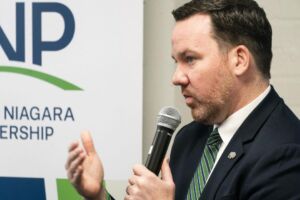
- Sean Ryan. Ryan represents Buffalo in the New York State Senate. He previously served in the State Assembly and worked as an attorney.
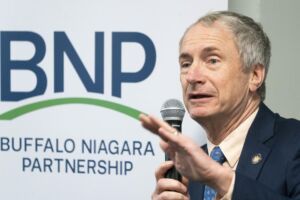
- Garnell Whitfield. Whitfield is retired from the Buffalo Fire Department, where he served as Fire Commissioner. He also served as Deputy Commissioner of the New York State Department of Homeland Security and Emergency Services.
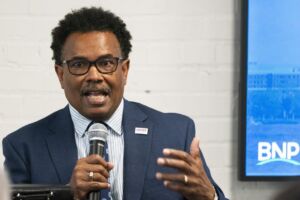
Topics at hand
 Buffalo News Business Editor David Robinson moderated the forum.
Buffalo News Business Editor David Robinson moderated the forum.
Much of the discussion focused on the city’s budget. Buffalo faces a major budget deficit this year, so candidates presented their plans to bridge the gap in the short term, and set the city on a path toward long term fiscal stability. Candidates mentioned property tax increases, increased hotel taxes, bonding city expenses, selling city-owned assets, and limiting IDA-offered tax incentives as revenue-raising strategies.
Beyond the city budget, the forum covered a variety of other issues related to the City’s economy, including:
- Housing: how to encourage development of new housing units in the city, and how to enforce codes to ensure safety and quality.
- Downtown Revitalization: how to attract businesses, residents, and vitality to rekindle Downtown Buffalo’s momentum that stymied during COVID.
- Historic Preservation: how to find the proper balance between encouraging new development and celebrating our unique architectural heritage.
What's next in the race
The candidates will compete in the June 24 Democratic primary, with November’s election determining who will lead City Hall in 2026. The BNP will keep you updated on this critically important race.
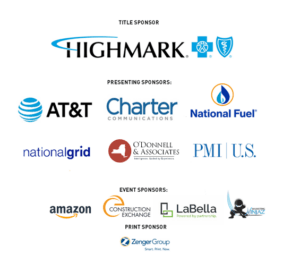
Related Posts
11.23.21 COVID-19 Bulletin: Erie DOH Releases Details on New Mask Mandates
Yesterday, Governor Kathy Hochul announced she would repeal the state’s mask mandate, effective today. However, her announcement did not proactively address how the repeal coincided with the NY HERO Act, which would have required employees in most workplaces to continue masking.
11.22.21 COVID-19 Bulletin: Poloncarz Reinstates Indoor Mask Mandate
Yesterday, Governor Kathy Hochul announced she would repeal the state’s mask mandate, effective today. However, her announcement did not proactively address how the repeal coincided with the NY HERO Act, which would have required employees in most workplaces to continue masking.
11.18.21 COVID-19 Bulletin: OSHA’s Vax/Test Mandate Paused Amid Legal Limbo
The Occupational Safety and Health Administration (OSHA) announced it is pausing implementation and enforcement of its COVID-19 Vaccine and Testing Emergency Temporary Standard. Per OSHA’s website:
11.18.21 COVID-19 Bulletin: OSHA’s Vax/Test Mandate Paused Amid Legal Limbo
Yesterday, Governor Kathy Hochul announced she would repeal the state’s mask mandate, effective today. However, her announcement did not proactively address how the repeal coincided with the NY HERO Act, which would have required employees in most workplaces to continue masking.


